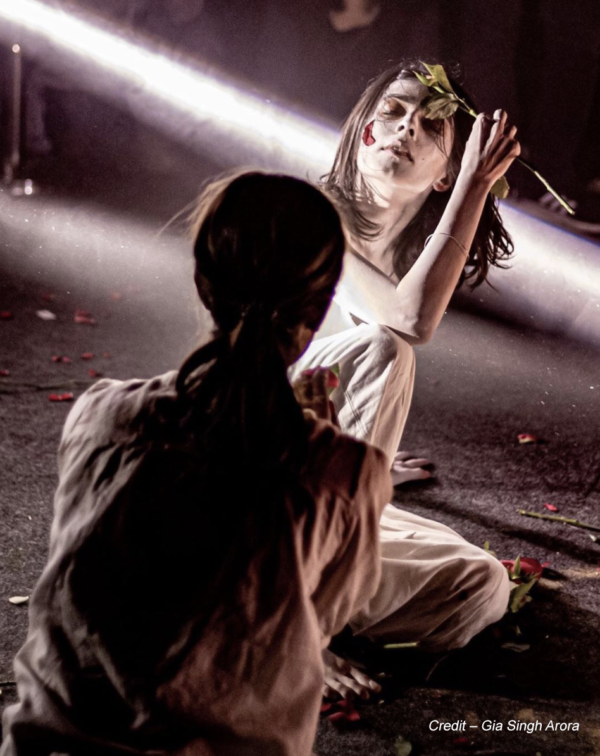Live performances end too soon. The dancer takes a final shape, the music simmers into stillness and the stage is left empty. At this moment, before the emptiness can even be recognised we begin to clap, sometimes stand (even when we don’t mean it), the performer comes back onto stage, though they look the same in costume and make up, they feel nothing like what we saw before. A bouquet of flowers and after many thanks to the team, we begin to exit.
I wish the performer never returned to stage, I hoped they’d never say a word. I haven’t finished tasting, I’d say. I need more time.
The space between the dancer wrapping up and the sound of the clap is too soon. As viewer’s and as performers the time between which something can actually be tasted is reduced to less than nothing.
I felt this way when I was on stage performing the last moments of Moksha during my ManchPravesh in 2012. I had just gotten into a meditative yogic posture, my eyes curled up with my hands on my thighs. I was just about to close my eyes, desiring, and wanting to stay there for just one moment. One moment of silence at the end of an hour and a half of movement and sound. My mother’s close friend pushed her onto the stage to give me a hug. The audience began to clap. My eyes never got to close; I was pulled back into the room and on the stage. I have never looked at this aunty in the same way after. Wrapping up tight and too soon when a performance ends means that pleasure is immediately knotted back in our stomachs before we exit the space. This space we tie up tight is where I claim rasa not only exists but lingers, absorbs, and is embodied if opened up.
I’d say sit back. Look at the space when everything is over. Do you see the residue of the performance? Can you taste it through the pace of your heart and the texture of your breath? The beating silence in your ears, some days louder than the drum. And on some days louder than the actual viewing of the performance. This is a rasa-full place, space, filled with visceral, versions of what we just previously encountered as the performance. We taste after, right after, which extends into the continuous process of after-ing, be-ing, see-ing, feel-ing. I’d say a performer and a viewer’s rasa-ness might even meet at the almost end. Never before.Right at, or right before, or right after. But close, nearing the end.
When I’d see Nrityagram’sSurupa Sen and BijayiniSatpathy practice at Hessarghatta, Bangalore, I’d close my eyes. Usually at the end of the piece, and sometimes while it was going on. At first, I thought it was ridiculous to close my eyes in any performance… isn’t the rasa present in what I see in front of my eyes? Isn’t that the place from where I savour? Closing my eyes for those couple moments brought me closer. I’d like to make a mental note that rasa has everything and still little to do with my eye and the way it sees. It is a liquid and gooey eye, it is not only the eye of my physical eye but an eye that exists in every part of my body. My whole body can experience rasa. Then there is the invisible eye, the eye that has no patterns, no physical point nor perspective, it is the eye that can never be fixed. It can be called upon but it can only come by its own accord. Rasa enters my system during the weirdest of times, nowadays especially when I watch a social media video of a grandmother dancing to a Bollywood song in an open garden. Attempting to fix this eye, analyze it or critically approach it will not allow you to savour anything.

